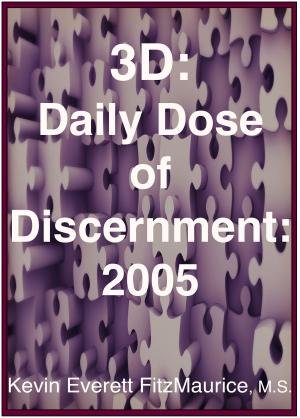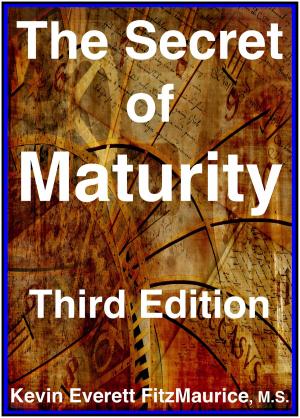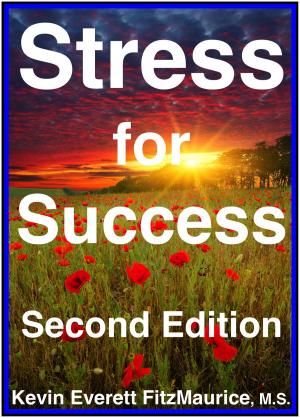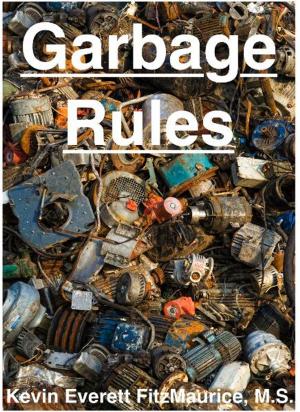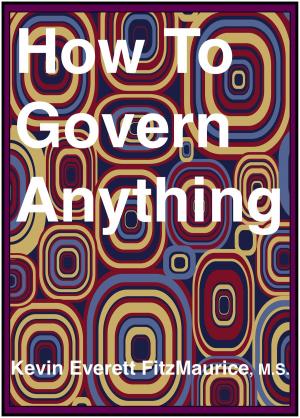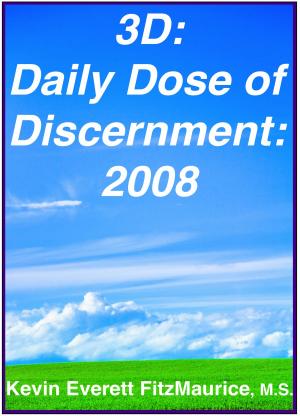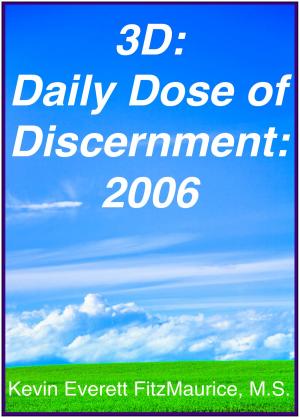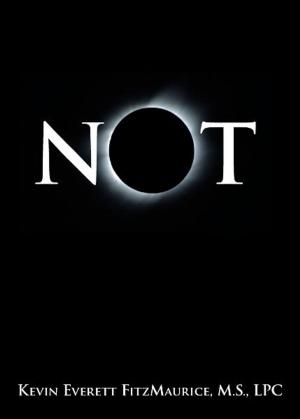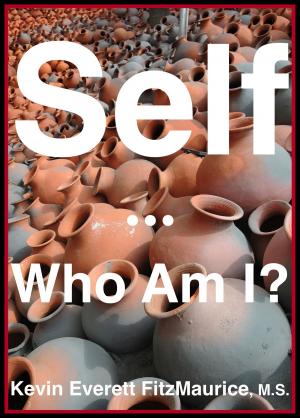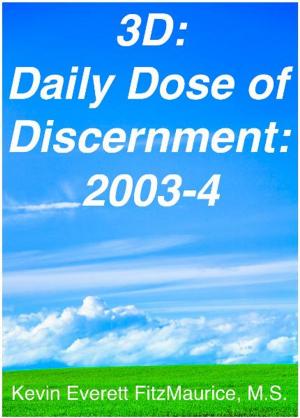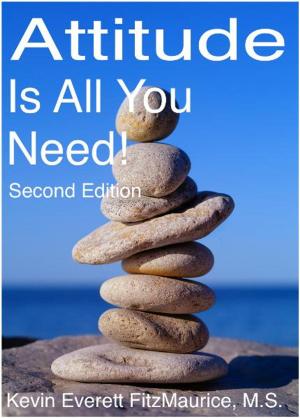| Author: | Kevin Everett FitzMaurice | ISBN: | 9781878693211 |
| Publisher: | FitzMaurice Publishers | Publication: | August 4, 2011 |
| Imprint: | Language: | English |
| Author: | Kevin Everett FitzMaurice |
| ISBN: | 9781878693211 |
| Publisher: | FitzMaurice Publishers |
| Publication: | August 4, 2011 |
| Imprint: | |
| Language: | English |
This book is a compilation of posters from the authors counseling practice. Some posters were designed to hang in the office, some in the waiting room, and some for clients to take home. Most of the posters presented in this book were never seen or shared. This was because of a focus on many of the other handouts developed by the author for his clients. Additional sayings have been added, and many of the posters have been rewritten or modified. Pithy sayings can be either instantly helpful or meaningless. Often the best results from sayings or aphorisms come after they have grown slowly in the garden of your mind. Ideas you may reject at first can come to have more meaning in time. Aphorisms that make no sense today can suddenly reveal themselves to you years later. Some sayings can follow and teach you for a lifetime. For example, Drink from your own well, has taught the author again and again for many years. Making yourself contemplate a saying that you do not understand can reveal much about your thinking styles. Is it the saying or your lack of openness that is cold? Feeling your way to the inside meat of a saying is the best approach. You will find the sayings herein amusing, helpful, interesting, and thought provoking. Some of the sayings are like Zen koans; if you sit with them, they reveal the other side free of words. Some of the sayings are open to multiple interpretations and meanings. New meanings will arrive on different journeys through the book. The same insight shared different ways helps you not to miss deeper felt experiences for simple surface meanings. It often happens that a slight change in wording allows someone to drop their mind long enough to hear something fresh. One persons, thats obvious, is another persons ah-ha moment. Let the sayings pass that dont open to you now. Focus on the sayings that bring stillness. Listen beyond the words. Feel, rather than think, the sayings through. Sense, rather than think, the music behind the words. Manage to touch the energy behind the words and your heart will be touched. The first chapter consists of sayings related to both right and wrong thinking patterns. You are helped to discover how thinking can easily lead to misperception. You are encouraged not to make thinking the screen between you and life. Thought can be either a wall or a door depending on how you use it. Chapter Two contains sayings that help to make real the difference between being a container versus being the contents of a container. You are helped to rediscover your child nature as a container, in favor of your adult nature as contents. Understanding the nature of self makes it easier to choose to live in authentic moments. The third chapter gathers sayings that help point to what is and what is not genuine self. You are helped to discover and live in self instead of in ego. Chapter Four is mainly concerned with how and why you are responsible for your feelings. You are helped to become more mature by owning and accepting responsibility for your feelings. Owning your feelings is necessary for awareness and honesty. Being responsible for your feeling is necessary for leading an empowered life. The fifth chapter collects sayings that did not easily fit into one of the first four chapters. Most of those sayings continue ideas presented in the previous chapters. You will discover as much meaning as your ego defenses will allow. Chapter Six consists of longer posters that could and should not be reduced to sayings. The seventh chapter consists of poems related to the ideas of the book. Chapter Eight is the final chapter which includes end matter such as a recommended reading list. Chapters 15 contain 365 sayings making them suitable for daily reflection or a calendar.
This book is a compilation of posters from the authors counseling practice. Some posters were designed to hang in the office, some in the waiting room, and some for clients to take home. Most of the posters presented in this book were never seen or shared. This was because of a focus on many of the other handouts developed by the author for his clients. Additional sayings have been added, and many of the posters have been rewritten or modified. Pithy sayings can be either instantly helpful or meaningless. Often the best results from sayings or aphorisms come after they have grown slowly in the garden of your mind. Ideas you may reject at first can come to have more meaning in time. Aphorisms that make no sense today can suddenly reveal themselves to you years later. Some sayings can follow and teach you for a lifetime. For example, Drink from your own well, has taught the author again and again for many years. Making yourself contemplate a saying that you do not understand can reveal much about your thinking styles. Is it the saying or your lack of openness that is cold? Feeling your way to the inside meat of a saying is the best approach. You will find the sayings herein amusing, helpful, interesting, and thought provoking. Some of the sayings are like Zen koans; if you sit with them, they reveal the other side free of words. Some of the sayings are open to multiple interpretations and meanings. New meanings will arrive on different journeys through the book. The same insight shared different ways helps you not to miss deeper felt experiences for simple surface meanings. It often happens that a slight change in wording allows someone to drop their mind long enough to hear something fresh. One persons, thats obvious, is another persons ah-ha moment. Let the sayings pass that dont open to you now. Focus on the sayings that bring stillness. Listen beyond the words. Feel, rather than think, the sayings through. Sense, rather than think, the music behind the words. Manage to touch the energy behind the words and your heart will be touched. The first chapter consists of sayings related to both right and wrong thinking patterns. You are helped to discover how thinking can easily lead to misperception. You are encouraged not to make thinking the screen between you and life. Thought can be either a wall or a door depending on how you use it. Chapter Two contains sayings that help to make real the difference between being a container versus being the contents of a container. You are helped to rediscover your child nature as a container, in favor of your adult nature as contents. Understanding the nature of self makes it easier to choose to live in authentic moments. The third chapter gathers sayings that help point to what is and what is not genuine self. You are helped to discover and live in self instead of in ego. Chapter Four is mainly concerned with how and why you are responsible for your feelings. You are helped to become more mature by owning and accepting responsibility for your feelings. Owning your feelings is necessary for awareness and honesty. Being responsible for your feeling is necessary for leading an empowered life. The fifth chapter collects sayings that did not easily fit into one of the first four chapters. Most of those sayings continue ideas presented in the previous chapters. You will discover as much meaning as your ego defenses will allow. Chapter Six consists of longer posters that could and should not be reduced to sayings. The seventh chapter consists of poems related to the ideas of the book. Chapter Eight is the final chapter which includes end matter such as a recommended reading list. Chapters 15 contain 365 sayings making them suitable for daily reflection or a calendar.


